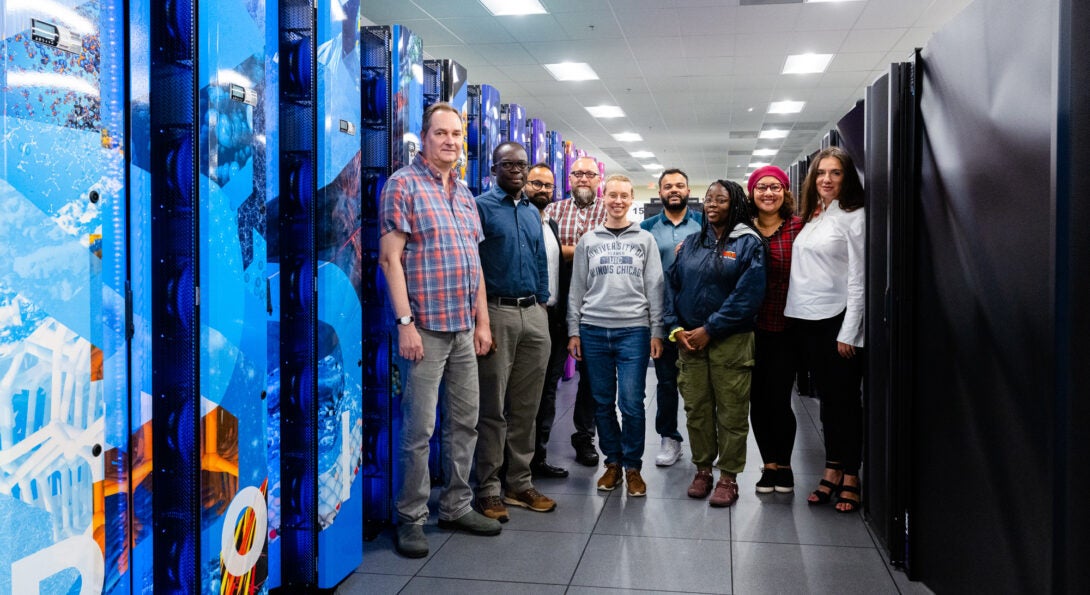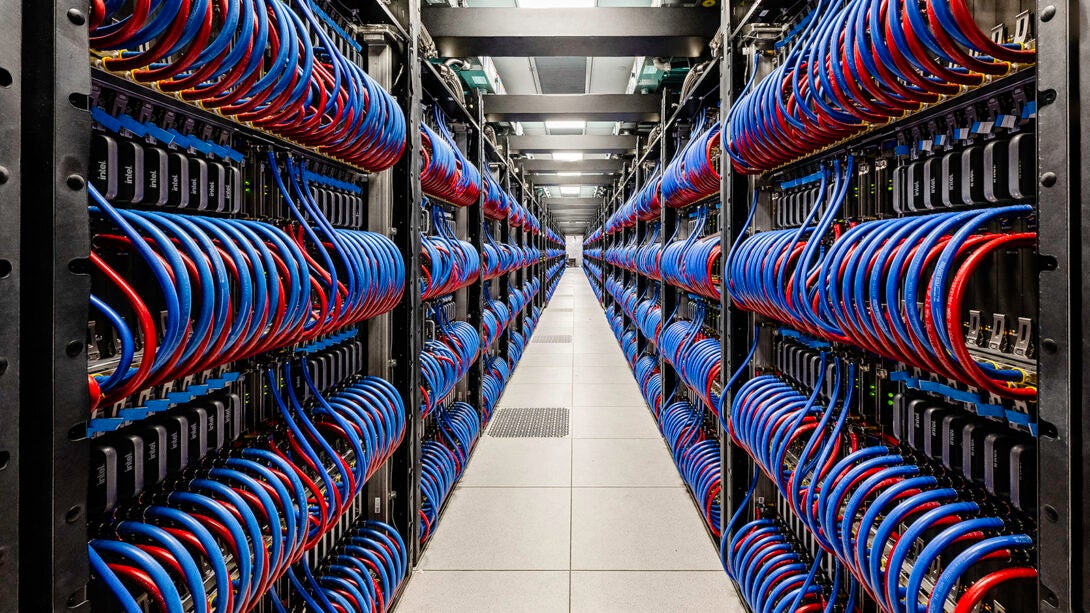Argonne Leadership Computing Facility Lighthouse Initiative

parnership
“The Lighthouse Initiative is a very exciting partnership that provides a path for UIC researchers from ACER to ALCF and access to leading-edge supercomputing resources,” said TJ Augustine, vice chancellor of innovation at UIC
What is the Lighthouse Initiative?
The Argonne Leadership Computing Facility (ALCF) Lighthouse Initiative aims to broaden the reach of HPC and actively engage with the upcoming generation of computing professionals.
UIC’s Advanced Cyberinfrastructure for Education and Research (ACER) has joined the ALCF lighthouse initiative, providing an avenue for support for university faculty and researchers interested in using ALCF resources.
Through this initiative, we will assist faculty and researchers by/with:
- Preparing, porting and testing applications for suitability of ALCF resources and for scaling the applications for use on ALCF systems
- Providing an allocation on an ALCF systems along with tier 1 support for qualified projects
- Aiding in migrating projects from Lighthouse to a ALCF larger allocation, such as INCITE/ALCC/DD for graduating projects
- Access to specialized training tailored for the University offered by Argonne
- Access to information about summer internship opportunities for students
- Access to ACER staff with HPC and ALCF systems expertise
Himanshu quote
“Our university investments through ACER programs such as Chicago Computes, Secure Computing Environments, and HPC Partnership bring computing, data, and AI resources to the UIC research community. This Lighthouse initiative provides a new pathway for the UIC community to gain access to expertise and world-class resources at ALCF. Through these investments and partnerships, UIC leadership is committed to advancing science through computing, data, and AI.” said Himanshu Sharma, Associate CIO for Research Technologies and Innovation, Technology Solutions
Resources
The Lighthouse Initiative will be supporting applications running on the following ALCF systems:
- Aurora: Argonne’s flagship exoscale supercomputer. The machine is equipped with 63,744 GPUs and 84,992 network endpoints, making it one of the largest supercomputer installations to date. The system is built upon the HPE Cray EX supercomputer platform and includes Slingshot 11 interconnect as the network backbone, which offers a host of significant new features such as adaptive routing, congestion control, and Ethernet compatibility (learn more).
- Polaris: The Polaris system is a 560 node HPE Apollo 6500 Gen 10+ based supercomputer, with each node boasting significant computational power. At the heart of each node lies a single 2.8 GHz AMD EPYC Milan 7543P 32-core CPU, complemented by 512 GB of DDR4 RAM. This robust processing capability is further enhanced by the inclusion of four NVIDIA A100 GPUs, linked via NVLink, which provides substantial acceleration for parallel computing tasks (ALCF Documentation).
- Graphcore: Graphcore’s IPU is a novel processor architecture specifically designed to address the computational demands of AI workloads. Unlike traditional Central Processing Units (CPUs) or even Graphics Processing Units (GPUs), IPUs are engineered to handle the sparse, irregular data patterns and the dynamic nature of machine learning algorithms with greater efficiency. The Bow Pod64, with its 22 petaflops of processing power, is the embodiment of this technology, tailored to empower researchers to explore new AI techniques and model types that were previously constrained by hardware limitations (insideHPC).
- Sambanova: The SambaNova system’s RDA is a comprehensive solution that encompasses advancements across various layers, including algorithms, compilers, system architecture, and hardware. This full-stack approach ensures that the system is not only capable of executing complex machine learning models but also efficient in terms of scalability and performance (SambaNova).
- Groq: At the heart of the ALCF’s AI Testbed is the GroqRackTM compute cluster, an assembly that showcases Groq’s approach to AI acceleration. The cluster comprises nine GroqNodeTM units, each housing eight GroqCardTM accelerators. These nodes are interconnected in a rotational multi-node network topology, which is based on a dragonfly multi-chip layout, facilitating high-speed chip-to-chip connections (ALCF System Overview). The Groq architecture is designed to provide a significant computational advantage for AI workloads, which often require massive parallel processing capabilities. Groq’s accelerators are specifically engineered to handle the intense demands of deep learning algorithms, offering researchers the tools they need to push the boundaries of AI research.
- Cerebras: The Cerebras ALCF resource is particularly adept at handling tasks such as training large language models. These models, which are often expansive and intricate, can take more than a week to train on dedicated GPU resources. The Cerebras platform, however, is engineered from the ground up to efficiently train these models, even those with long context spans across various languages and domains. This capability is crucial for advancing research in areas such as natural language processing and machine learning (Cerebras Applications).
How UIC researchers will benefit from the ALCF’s Lighthouse Initiative?
- Access to Cutting-Edge Resources: UIC researchers will gain access to the ALCF’s state-of-the-art high performance computing (HPC) systems, including the Polaris. These resources are among the most advanced in the world, providing unparalleled computational power for complex research projects.
- Training and Support: The initiative includes comprehensive support from ALCF staff, who will work closely with ACER personnel to ensure researchers are well-prepared to utilize these advanced systems. This includes introductory onboarding workshops and a dedicated point of contact for ongoing assistance.
- Collaboration Opportunities: The Lighthouse Initiative fosters collaboration between UIC and other leading academic institutions, facilitating the sharing of knowledge and expertise. This collaborative environment will enhance research outcomes and drive innovation.
- Scalable Research: By leveraging the ALCF’s vast GPU resources and large-scale systems, UIC researchers will be able to conduct their research at a scale previously unattainable. This capability is crucial for advancing scientific discoveries and achieving significant breakthroughs.
- Talent Development: The initiative supports workforce development goals by providing internship opportunities to UIC students, helping to build a pipeline of diverse and skilled computing professionals who will contribute to future advancements in scientific research.
- Strategic Positioning: Participation in the Lighthouse Initiative positions UIC at the forefront of computational science, enhancing its reputation and competitiveness in the field of HPC-driven research.
Call for Proposals

For more information please contact us at acer@uic.edu